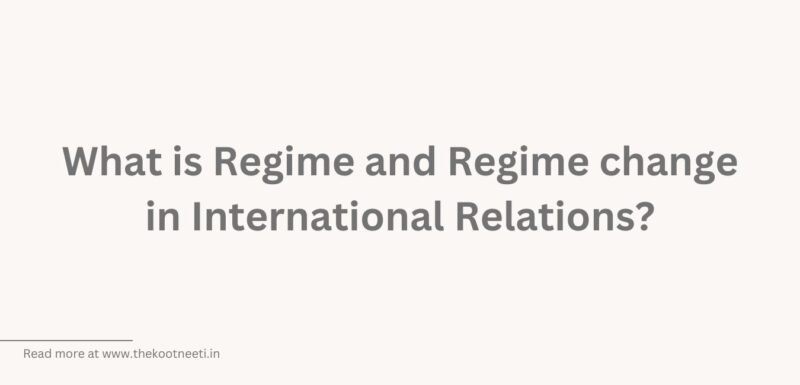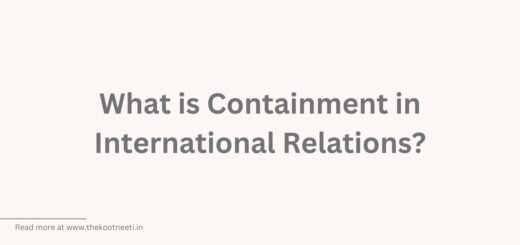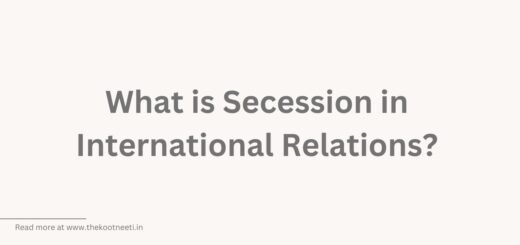What is Regime and Regime change in International Relations?

In international relations, a regime is a set of rules, norms, and principles that govern the behavior of states or other actors in a specific issue area or domain. Regimes can be formal or informal, and they can take many different forms, including international organizations, treaties, and informal networks of states or other actors.
Regimes are often established to address specific issues or challenges of concern to the international community, such as the proliferation of weapons of mass destruction, the protection of human rights, or the conservation of natural resources. Regimes can also be established in order to facilitate cooperation and coordination among states or other actors, and to promote predictability and stability in international relations.
There are many examples of regimes in international relations, including the United Nations (UN) system, the World Trade Organization (WTO), and the International Monetary Fund (IMF). Regimes can have a significant impact on international politics, and they are often the focus of research and analysis in the field of international relations.
Regime Change
Regime change refers to the process of replacing an existing regime or system of government with a new one. Regime change can occur through various means, including revolution, civil war, military intervention, or democratic elections.
In international relations, regime change can refer to the process of changing the government of a particular state, or to the process of changing the rules, norms, and principles that govern the behavior of states or other actors in a specific issue area or domain.
Regime change can have significant consequences for the affected state and for the international community more broadly. It can lead to instability, conflict, and human rights abuses, and can also have economic and political consequences. Regime change can also be a controversial and divisive issue, as different states or actors may have competing interests and agendas in relation to the process of changing regimes.
Different from Government change
Regime change and government change are similar in that they both refer to changes in the way a country is governed. However, there are some important differences between the two concepts.
Regime change refers to a change in the political system or governing structure of a country. This can include changes in the form of government (e.g. from a dictatorship to a democracy), changes in the political ideology of the ruling party (e.g. from communism to capitalism), or changes in the way power is exercised (e.g. from a centralized to a decentralized system). Regime change is often the result of violent or non-violent revolutions, civil wars, or foreign intervention.
Government change, on the other hand, refers to a change in the leadership or personnel of a country’s government, without necessarily changing the underlying political system or governing structure. Government change can occur through regular elections, coups, or other means of transferring power.
In summary, regime change involves a fundamental change in the way a country is governed, while government change involves a change in the people who are in charge of the government, but not necessarily a change in the system itself.


















